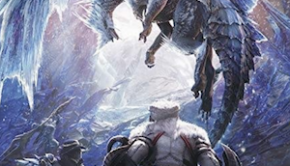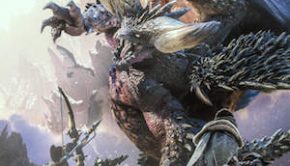Okami Arrangement Collection Vol. 2 -Jazz-
 |
Album Title: Okami Arrangement Collection Vol. 2 -Jazz- (Okami Henkyokushuu Vol. 2 -Jazz-) |
| Record Label: Suleputer |
|
| Catalog No.: CPCA-10378 |
|
| Release Date: Feb 11, 2015 |
|
| Purchase: Buy from CDJapan |
Overview
I love Okami and I love jazz. With that in mind, one can probably imagine the amount of excitement I had when I first heard that Capcom would be releasing an arrange album from the series set to that kind of music. Of course, excitement was also paired with skepticism. After all, Okami’s soundtrack heavily inspired by traditional Japanese music and jazz is perhaps as far away as one could get from that. Yet, I then considered who would be involved and realized that everything would turn out fine. I was a large fan of Capcom’s Ace Attorney jazz album released a few years back, so I knew that it would be in good hands at least label-wise. But then there’s the talent themselves. Professional musician Zac Zinger, who coincidentally is from my hometown of Pittsburgh, was additionally behind the arrangements in this cross-cultural release. He proves himself to be a jack of all trades here; handling soprano, alto, and tenor saxophones along with flute, clarinet, and even shakuhachi. This is also paired with some similarly skilled performances from the rest of the band on piano, Fender Rhodes, organ, bass, and drums. Everything was lined up for Okami Henkyokushuu Vol. 2 -Jazz- to be a success and it did not disappoint.
Body
The opening saxophone notes of “Rising Sun,” the album’s first track, quickly establish that what we’re listening to is quite different from the ethnic instrumentation found in the original Okami. The melody is soon joined with drum kit and bass backup, allowing a smooth line of music to progress. Zinger and his band go into some improvisation where the piece becomes more laid-back around its one-minute mark. The saxophone is still given primary focus with its bluesy riff for another minute, only for a new secondary theme to be introduced around 2:10, reverberated by the piano. Soon afterwards the sax returns, aided by some percussion backing. The original theme is re-introduced once again, leading the rest of the piece into an improvised conclusion. As one of my favorite tracks from the game, I was definitely impressed with Zinger’s interpretation of it. While the elements here are comparable to that of an old radio-play jazz band, the Eastern qualities are still quite apparent.
“Kamiki Festival” begins somberly with romantic strings and lush piano bars. Led in by the drum kit, Zinger brings in a celebratory saxophone theme that’s reminiscent of blues. Much of this piece relies heavily on improvisation, allowing the relatively simple melody to be varied and inspired throughout its runtime. More interesting is Zinger’s take on Okami’s ending theme “Reset.” Its original vocal performance by Ayaka Hirahara was nothing short of gorgeous, fulfilling the pathos established throughout the game’s long journey by the player. The jazz version here is something different, being much akin to a lounge piece. The sensuous base and mellow piano introduction lead way for Zinger’s performance of the melody. Though perhaps a little schmaltzy and a tad slow-paced at times for my tastes, it makes for a pleasant listen with some interesting instrumentation.
The pace picks up with “Waka’s Promenade ~ Playing With Waka,” opening with a drum solo and continued on with a swinging sax melody and keyboard synths. The piece keeps a constant rhythm consistent with the teasing nature of the titular character during this boss fight. Responding akin to a battle between Amaterasu and Waka, the dynamics between each instrument are an impressive combination. “Shachi Maru’s Theme” completely turns around the original piece into an interpretation that’s full of swing and color. It’s even better than before, from the consistent bass riffs to the improvised melody on sax. The only weak point is that it ends rather abruptly, and with some notes that I could do without.
The following piece, “Ryoshima Plains,” features another change in tone. This time, a clarinet section is introduced, creating a melancholic atmosphere with a blues-like sound that subtly progresses. In a dazzling display, the background instruments form a wonderful bout of harmony which works amazingly with the main performance. Simply stunning, and one of the album’s best tracks. “A Great Monster Lies in Wait,” on the other hand, adheres much closer to its Japanese roots featuring only acoustics. The electric bass is clearly trying to emulate the original biwa sound, and it makes for some interesting experimentation despite having the shortest runtime compared to the others. Similar sound is utilized with “The Tribe of the Heavenly Gods Theme,” though benefits more with the added Fender Rhodes and sax sections.
“Kushinada’s Ride” opens swiftly and strongly with a rapid-fire flute theme paired with some excellent percussion and piano keys. Zinger’s performance on flute here is excellent and skillfully done, holding my interest throughout the entire piece. It pulls no stops, and goes all out in a breathtaking rush. “The Emperor of Eternal Darkness,” despite the title, is actually upbeat and flowing, once again having much focus on the saxophone which this time goes through several crescendos and different developments. At the midway point, the piano is given more focus aided by the other elements. The piece shifts back and forth between each instrument, until the sax trails off with a mysterious denouement. Ending things, the album’s final track is a sexy lounge piece for the character Tsuzurao. Most notably, Zinger performs the main melody on the shakuhachi, a traditional Japanese flute. Already having a theme that was particularly jazzy to begin with, the interpretation here is even more developed. Though perhaps some notes on the shakuhachi can get a bit airy, the backing by bass and piano more than make up for it. The overall tempo increases in speed towards the later part, then fades, leading to a thoroughly satisfying conclusion.
Summary
Okami Henkyokushuu Vol. 2 -Jazz- entertained me from start to finish, and strongly appealed to my inner love for the genre. While some parts of the performances suffer from slight imperfections at times, that did little to deter me enjoying it immensely. Zack Zinger and his gang of musicians turn in a stellar job overall. In particular, his arrangements of each track are spectacularly done, even moreso considering that this is only his second album related to video game music. I personally hope that he’ll return once again to do another, because he clearly shows talent in this field. But as for Okami, it earns a large recommendation from me to any fan of the series and to any listener who loves jazz just as much as I do. Even to those unfamiliar with the game, there is a ton to like here. It’s worth every bit of its price, and definitely earns one’s attention.
Do you agree with the review and score? Let us know in the comments below!
4.5
Posted on March 17, 2015 by Oliver Jia. Last modified on January 19, 2016.














